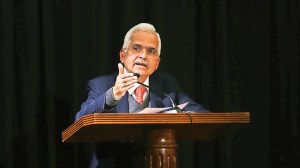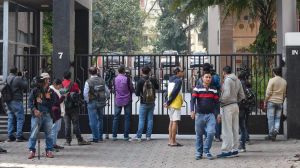Shiksha for Sarkar
When textbooks for schoolkids end up as scrap, time to consider the school voucher option

Madhya Pradesh, in the best of times, is not exactly a frontrunner in national education stakes. Its literacy rate is less than the national average and its school drop-out rate is among the highest in the country. Now comes evidence of how deep the rot is. This newspaper has just run an expose on how school textbooks meant for free distribution under the prestigious Sarva Shiksha Abhiyan end up not in the hands of the schoolchildren they are meant for, but in the godowns of scrap dealers.
Two aspects have emerged from the recent scam. One, there are disturbing intimations that a system breakdown is occurring in the hinterland, the very places where school education is most urgently required but is most conspicuously absent. Two, those involved in the web of corruption include the very persons in whom the state vests its expectations of education-delivery: the teachers. Should one then be very surprised if, after decades of state intervention, many blocks in the state 8212; especially those dominated by tribals 8212; have reported literacy levels of 30 per cent or thereabouts.
There can be no disputing that the state must fund elementary education in the country. But the notion that only government-run schools can deliver results has proved to be remarkably fallible. Given this reality, and given the fact that education is now universally perceived as a marker for better life, we need to consider the market option: school vouchers. This provides parents public funds to pay for educating their children in a school of their choice, even if it is a private one, rather than be forced to enrol them in non-functioning government schools. Once parents are made aware of the value of such vouchers, they will ensure that their children get the entitlements due to them, including of course their textbooks. And once private suppliers know parents8217; ability to pay is backed by public funds, supply will increase. So lesson No 1 for administrators: understand demand and supply.
- 01
- 02
- 03
- 04
- 05































